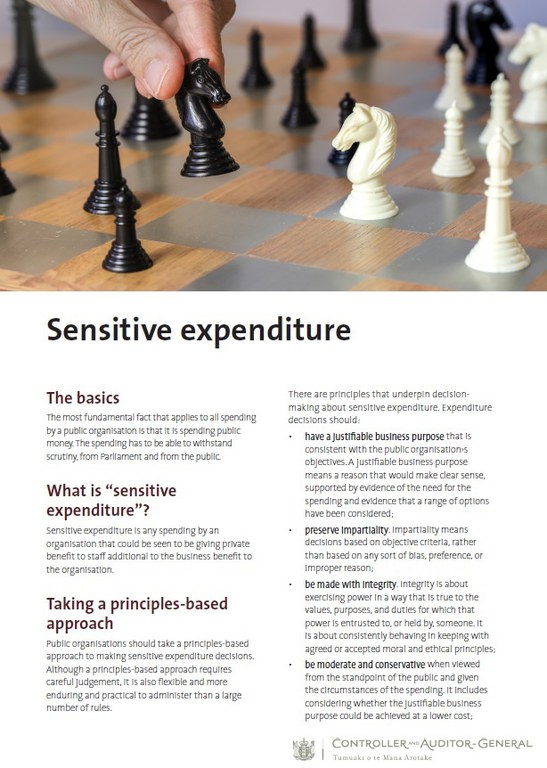Policies and procedures
Leaders and senior managers can make sensitive expenditure decisions that Parliament and the public respect by dealing with sensitive expenditure properly and prudently.
Sensitive expenditure policies
Sensitive expenditure policies need to:
- make clear what types of expenditure are and are not allowed;
- outline clear approval processes that are specific about who approves what (including that expenditure should generally be approved before it is incurred) and any exceptions to that;
- set spending limits or boundaries and specify dollar limits and defined boundaries, where practicable. Otherwise, the policies need to be clear about when people are expected to exercise careful judgement as to what is actual and reasonable;
- allow a manager discretion to grant an exception (management override) to a policy or procedure only in exceptional circumstances;
- specify the monitoring and reporting regime (including when exceptions to policies have been granted) and, where applicable, controls or checks that may be applied; and
- specify the requirements for review of the policies and procedures.
Procedures for approving sensitive expenditure
Sensitive expenditure should be approved only when:
- the person approving the expenditure is satisfied that it is for a justifiable business purpose that is consistent with the public organisation's objectives, and all of the principles have been adequately met;
- approval is given before the expenditure is incurred, unless it is for small amounts (for example, taxi fares) and allowed in the organisation's policies;
- the expenditure will be within budget and where delegated authority exists; and
- approval is given by a person who is senior to the person who will benefit (or might be perceived to benefit) from the sensitive expenditure. Where that is not possible, this should be recorded, and any such expenditure should be subject to some form of monitoring.
For more detailed information on preparing suitable policies and procedures for sensitive expenditure, please see Part 3 of our good practice guide on controlling sensitive expenditure.

